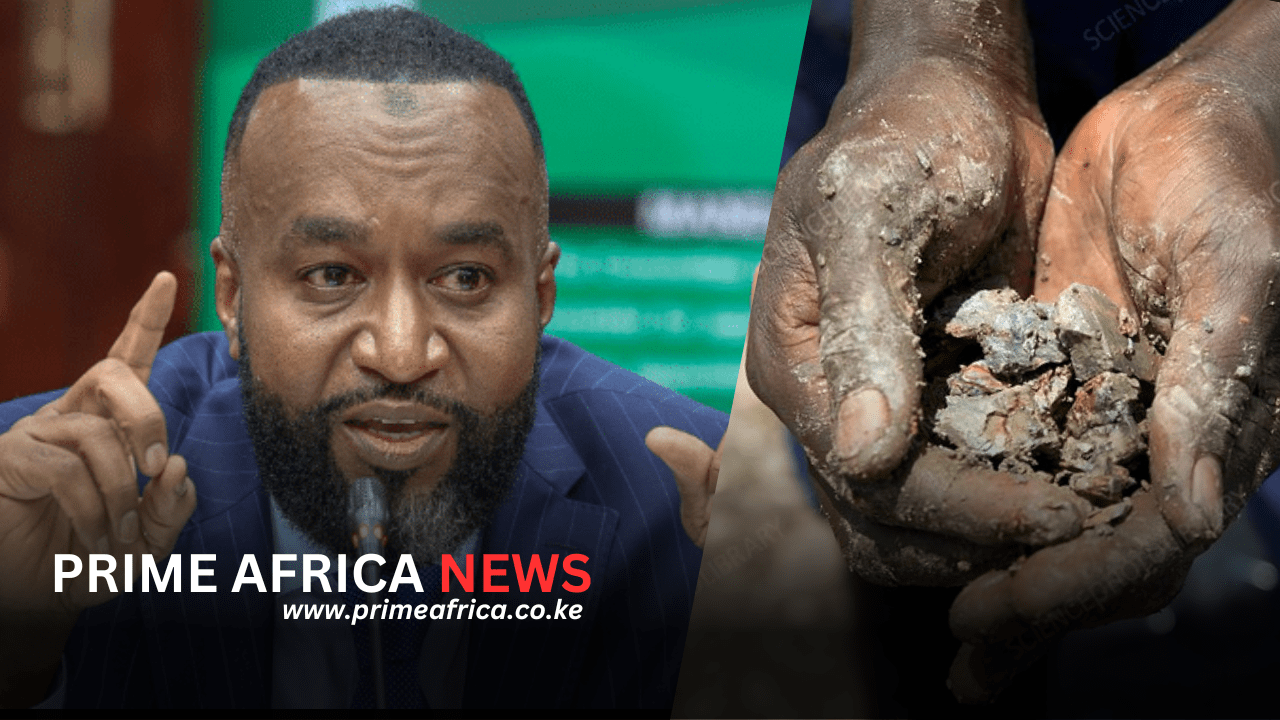Summary
- Moratorium & Reforms: Kenya froze new mining licenses in 2019 to clean up the sector, lifting the moratorium in October 2023 under President William Ruto.
- Mass Revocations: Over 1,500 mining licenses were revoked in 2023, with all holders ordered to reapply by November 30, 2023. By September 2024, 91% of reapplications had been rejected.
- Investor Insecurity: The Mines Review Board (MRB), created under the 2016 Mining Act, forces prospecting license holders to reapply every three years—wiping out continuity and exposing investors to arbitrary loss of rights.
- Constitutional Violations: The licensing regime is accused of violating property rights (Article 40), fair administrative action (Article 47), and equality (Article 27) by enabling arbitrary rejections, discriminatory treatment, and exploitation of investor data.
- Systemic Capture: The MRB system is described as a “legalized theft machine,” with political interference, weaponized community consents, and insider allocations undermining investor confidence and Kenya’s rule of law.
Nairobi, Kenya – When Kenya imposed a mining moratorium in December 2019, the justification was reform: to secure mineral wealth, complete geological mapping, and clean up licensing. It was a pause meant to protect national interest. The moratorium was lifted in October 2023 under President William Ruto’s administration, with promises of a transparent new era.
But what followed betrayed those promises. More than 1,500 licenses were revoked that same year, and existing licensees were forced to reapply by November 30, 2023. A year later, by September 2024, t least 91 percent of reapplications had been rejected, raising questions over whether government was genuinely reforming the sector—or clearing the field for new entrants. A source speaking to Prime Africa on condition of anonymity alleged that the rejections were deliberate, designed to create room for politically connected newcomers.
In October 2023, after partially lifting the mining moratorium, the Ministry of Mining through the Mineral Rights Board (MRB) system — gave mineral rights holders only 14 days to update and re-submit pending applications.
In regard to the lifting of the moratorium, the Ministry through MRB System only gave a 14 days’ window to the licenses and permit holders misleading to re-apply for their respective licenses.
According reliable sources, Prime Africa News Desk has established that within the 14 days’ window the government had numerously turned down the documents People were given 14 days to reapply and in so doing they had to expose their out their long term finding and discoveries to the government which wouldn’t be a problem if the system was fair and transparent. It can even be shown in the cadaster where the government has taken over the Investor’s PL being aware of the value of the PL.
And why would the government Re-issue a new PL number on your application, it’s because they want to destroy the existence of your exiting rights over that license. If the system was transparent where is the ability for the licensee to be able to renew their license? Currently there is none and if there is then it opaque.
At the center of this storm is the Mineral Rights Board (MRB), the statutory body created under the Mining Act 2016 to protect investors. Instead, it has become a lever of power, exceeding its mandate and undermining investor confidence.
“If the system was transparent, licensees would have a clear and fair path to renew their rights. Currently, there is none—or it is deliberately opaque,” one source told Prime Africa News Desk.
Here is why the Systemic is unconstitutional:
-
Article 40 – Right to Property:
By forcing prospecting license holders to reapply every three years, rather than renew as of right, the law deprives investors of legitimate expectations and tenure security. This amounts to arbitrary deprivation of property rights, since millions invested in exploration can be wiped out with the stroke of a pen. -
Article 47 – Fair Administrative Action:
The MRB exercises wide discretionary power in handling renewals. Investors face opaque delays, shifting requirements, and arbitrary rejections. The lack of clear, fair, and timely procedures violates constitutional guarantees of administrative justice. -
Article 27 – Equality and Non-Discrimination:
Overlapping licenses and insider allocations, often to politically connected entities, result in unequal treatment of investors. This discriminatory practice undermines both the letter and spirit of the Constitution.
Worse still, the system weaponizes exploration data. Investors, required to submit quarterly reports and surveys, hand over sensitive findings to the Ministry. During the renewal gap, that data is allegedly quietly used to issue overlapping licenses to politically connected entities. Communities are pressured into new demands, while spurious objections stall the process until investors give up—or are muscled out.
This is not governance. It is systemic extortion baked into the 2016 Mining Act. The MRB, far from being a safeguard, has evolved into a legalized theft machine.
The consequences are stark:
-
Investors face insecurity, unable to plan beyond a single license cycle.
-
Kenya’s global credibility as a mining destination collapses, driving away long-term capital.
-
Communities, instead of benefiting, are manipulated into bargaining chips for political elites.
This cannot continue. Kenya must act decisively if it hopes to unlock its mineral wealth. Parliament should urgently amend the 2016 Mining Act to guarantee security of tenure, ensure renewals as of right, and insulate licensing from political interference. The MRB must be audited, its excesses curtailed, and its processes subjected to transparent oversight.
The System is allowing a handful of people who are meant to be the guardians of resources of the country to steal from the Kenyan people.
Mining can and should drive Kenya’s economic diversification. But as long as the licensing regime remains a revolving door of extortion and political capture, investors will treat Kenya as a hostile jurisdiction. The message is clear: reform the MRB system—or watch the country’s mineral potential slip through the cracks.





